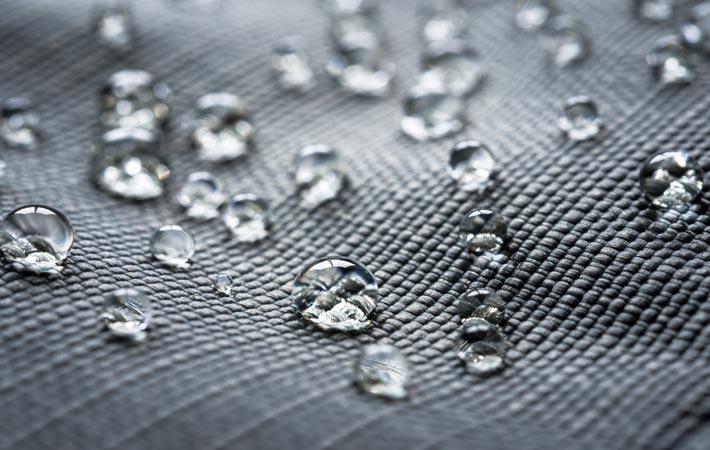Though significant progress has been made in environmentally-sustainable waterproof breathable fabrics, much remains to be explored, according to a report in Issue 67 of ‘Performance Apparel Markets’ from the global business information firm Textiles Intelligence. The market for such fabrics faces some challenges, notably those associated with sustainability.
Waterproof breathable fabrics have become extremely popular in a number of applications, including athleisure apparel, outdoor apparel, workwear and sportswear, because of the levels of protection and comfort they offer.Though significant progress has been made in environmentally-sustainable waterproof breathable fabrics, much remains to be explored, according to a report in Issue 67 of 'Performance Apparel Markets' from the global business information firm Textiles Intelligence.The market for such fabrics faces some challenges, notably those associated with sustainability,#
As a result, many players have entered the market, competition has become fierce and the range of waterproof breathable fabrics now available is diverse.
Several manufacturers are experimenting with the fibre compositions of these fabrics and are utilising natural fibres, including organic cotton, and fibres derived from recycled waste materials.
Public interest in environmental sustainability is at a high level, and brands are under increasing pressure to demonstrate that their products are ethical and have not been made using processes or materials which could cause harm to animals, marine life or human beings, says the report.
Materials used in the manufacture of these fabrics include membranes and durable water repellent (DWR) finishes. However, many of these, notably perfluorinated and polyfluorinated compounds (PFCs), are associated with chemistries considered harmful to human health and environment.
As such, there has been significant pressure on manufacturers to develop such fabrics that incorporate membranes and DWR finishes made using safer chemistries.
Several companies have risen to this challenge and have employed bio-based ingredients or taken inspiration from biomimicry in the development of such fabrics. One such firm is W L Gore & Associates (Gore) in the United States. In fact, Gore has set a milestone of completely eliminating PFCs of environmental concern from its products by 2023.
Some progress has also been made in the development of environmentally-sustainable membranes that contain recycled materials, such as the FENC TopGreen Membrane produced by Taiwan’s Far Eastern New Century (FENC). In particular, the membrane is made from recycled polyester polymer derived from post-consumer polyethylene terephthalate (PET) bottles.
However, there remains much room for improvement in the development of such fabrics, the report, titled ‘Waterproof breathable fabrics: balancing performance and environmental sustainability’, adds.
Fibre2Fashion News Desk (DS)
